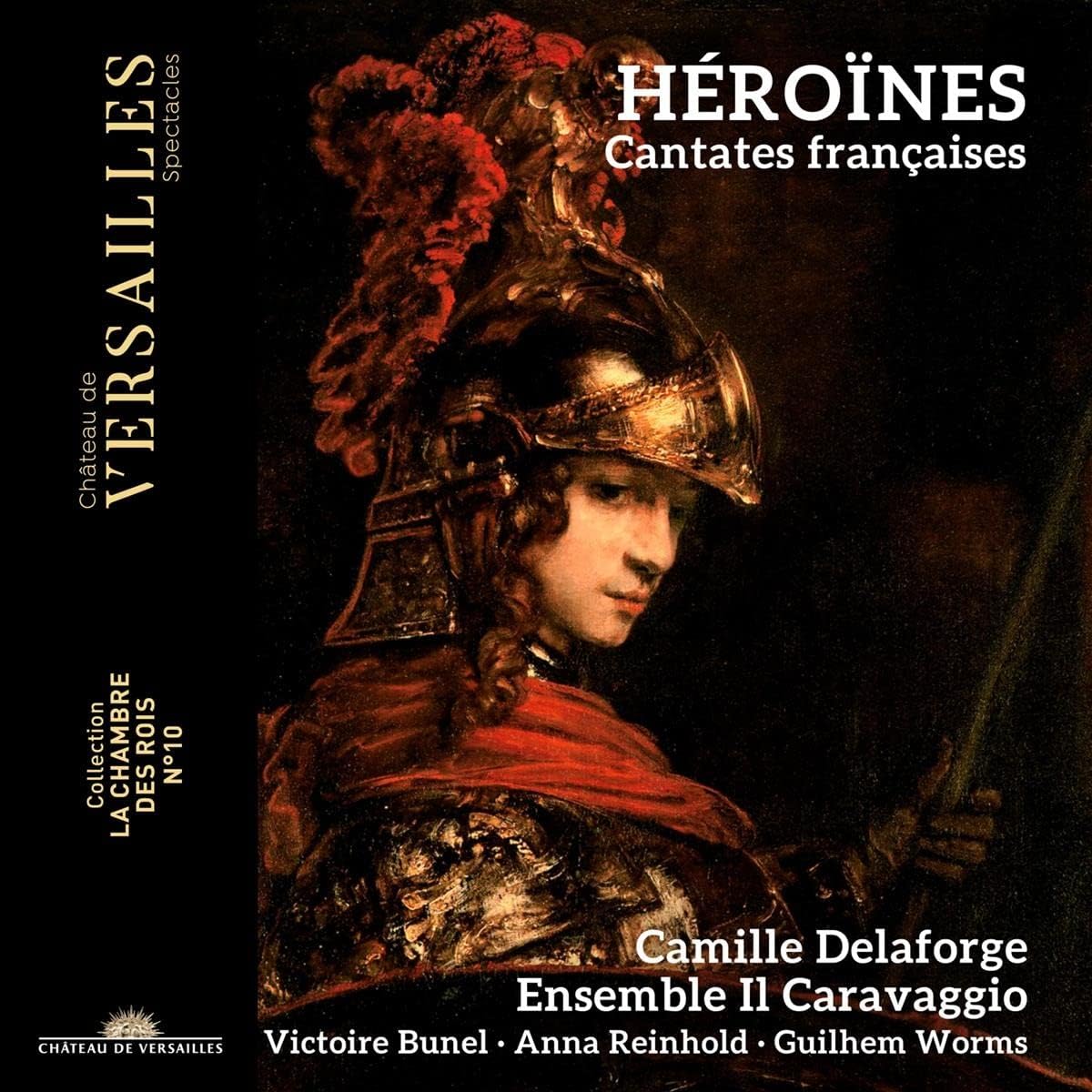Ensemble Il Caravaggio directed by Camille Delaforge
58:02
Château de Versailles Spectacles CVS090
A clue comes with the name Caravaggio. If it appears odd for a French ensemble to take the name of an Italian painter it can be at least in part explained by the objectives of the Ensemble Il Caravaggio, one of the newer among the plethora of French early music ensembles. Their first CD was devoted to 17th-century Italian music, while ‘Héroïnes’, far from being solely devoted to French cantatas, also incorporates airs de cour, excerpts from an early dramatic work by Lully, brief extracts from Elisabeth Jacquet de la Guerre’s 1694 tragédie lyrique Céphale et Procris (which is due for issue in a complete version on the Versailles Spectacles label) and the finest work on the disc, a cantata entirely in Italian style (and language) by one of the finest French cantata composers, Montéclair.
So we end up with a diverse programme with a foot in both French and Italian camps performed by two mezzos, Victoire Bunel and Anna Reinhold, and the bass Guilhem Worms, accompanied by a small ensemble drawn from Il Caravaggio. The only French cantata in every sense is the opening Le tombeau de Clorinde by the little-known Parisian organist Louis Antoine Dornel (1680-1765). It is a kind of sequel to the familiar story of the battle between the Crusader Tancredi and the Saracen woman warrior Clorinda. Like Monteverdi’s famous account of the battle itself, it is told as a dramatic narrative interspersed with personal reaction from Argantes, the lover of Clorinda. In two highly contrasted arias (more correctly ariettas), Argante expresses first his grief then his rage as he swears to avenge Clorinda’s death by killing Tancredi. Worms, his dark, sepulchral bass well suited to the cantata, impresses dramatically but the voice is not always securely produced, particularly where sustained notes are concerned.
The other larger-scale work is the Montéclair cantata, La morte di Lucretia, the story of the suicide of the wife of the Roman senator Collatinus following her rape by Tarquin. The highly-charged words of the poem are those of Lucretia herself, with the exception of a brief epilogue that comes after her death. Otherwise, it follows the recitative – da capo aria sequence familiar from Italian cantatas. The cantata is superbly sung by Bunel, whose excellent command of Italian brings splendid dramatic weight to the piece, singing with rich, amber tone finely produced across her range. The build-up to the moment of suicide and the final fragmentary words – ‘I die, heavens, I die’ is memorably and movingly managed. Incidentally, it is amusing to find the well-illustrated booklet includes a rare slip by this splendid label, the Lucretia pictured being not the Roman one but a knowing Lucrezia Borgia, one breast exposed to the world. Anything further from the heroic Roman wife would be hard to imagine!
Bunel also sings two airs from the de la Guerre opera, one an expression of Procris’s longing for solitude, which again displays her vocal acting skills – the words ‘Ah! J’aimerais encore les maux’ (Ah, I would delight still in the troubles …’ delivered with inexpressible longing. The other is a light- hearted song sung by Dawn, but we need to wait for the full opera before arriving at a more informed impression of it. The Lully is also taken from an Italian insert, a ‘Plainte d’Armide’ included in the Ballet des amours déguisés of 1664 and thus a work that precedes all his major operas. It follows the familiar lamentations of the sorceress Armida following her abandonment by Rinaldo. It is not especially memorable either as music or in the performance of Anna Reinhold. There is also a trio taken from a 1709 publication of ‘Airs sérieux et à boire’ by Nicolas Racot de Grandval (1676-1753), a new name to me and apparently particularly famed for his satires. The programme concludes with a catchy anonymous dance duet in strophic form winningly sung by Bunel and Worms that harks back to the beginning of the 17th century and ballet de cour.
Overall the CD makes for an attractively varied collection of French Baroque vocal chamber music that strays off the usual paths. It is especially worth sampling for the contribution of Victoire Bunel, who looks to be yet another burgeoning star in the overcrowded firmament of French Baroque music.
Brian Robins
